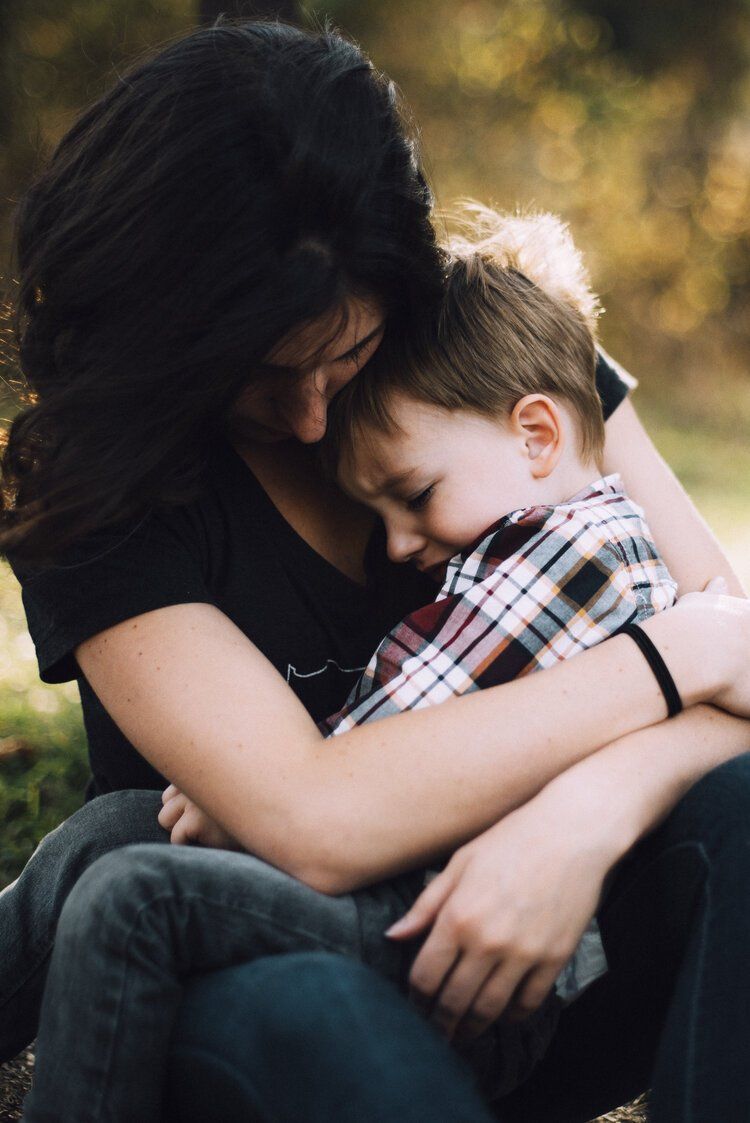- You feel guilty for missing out on school functions or playdates.
- You feel guilty for those things you don’t always have the strength to provide in that moment, the comforting presence, the unwavering smiles.
- You feel guilty at the idea of missing out on future milestones, small or big, as you struggle with the uncertainty of your diagnosis.
- You feel guilty for being ill and worry about how it may impact your children.
Life with cancer: 5 tips to cope with mom guilt
Mom guilt refers to the idea that, as a mom, you are failing your kids to some extent or falling short of your responsibilities towards them. Maybe you feel as if you are not doing enough, or not doing things just quite the way you should.
Mom guilt may feel like not spending enough time with your child, not reading enough books at bedtime, not feeding them the right type of food, not showing up to all the “meet the teacher” events at school, buying a store-bought cake for their birthday party, not wanting to play Lego, losing patience, wanting to take some time for yourself, having to work on the weekend, not organizing more playdates.
The list is endless.
No matter how much you do, mom guilt has probably stolen the joy out of your day more than once in your career as a mom!
And you’re not alone in this. I yet have to meet a mom who has never experienced an ounce of it!
And then, cancer happens. And mom guilt skyrockets as the demands put on body and mind increase, and you find yourself not able to participate in your children’s life as much as you would want to.
Dear mom, it’s okay to not have all the answers right now. You are doing the best you can dealing with a diagnosis that didn’t come with an instruction booklet.
Here are a few thoughts and suggestions I want to share with you:
1 . The predictability of routines can be helpful to children as they process the diagnosis and adjust to the many ways it impacts their life.
You will learn with time what works for you and your family. You will establish new routines that take into account your physical health and find new ways to show up for your children and loved ones. For instance, you may start eating breakfast in bed with your children on Sundays before they go to soccer practice or find comfort in reading their favorite book at bedtime. It will not happen overnight and routines may be adjusted when you have a good day, or when you just ended a round of chemo and need to focus on resting. But you will settle into a routine.
2 . Start a F-it list!
Yes, you read that right. Keep a list of things that are low priority in your life and that you no longer want to spend your energy on. Keep adding to the list as you go along. I want to share this blog post I came across not long ago about a lymphoma survivor and mom of 2, who started keeping her F-It list after being diagnosed with cancer. What’s on YOUR F-it list? Take out your phone, keep a running list of those things and keep adding on to it!
A few ideas of what it may look like: Keeping socks in pairs when folding the laundry (delegate or send your kids with non-matching socks!), circling around waiting for a parking spot (valet once in a while!), worrying about what others will say if you go out without a wig, cooking dinner every single day of the week, etc
3 . It is okay to feel all the emotions.
You are not a “bad mom” for experiencing sadness, grief, or anger. Let me repeat this once again, you are not a bad mom when you feel sad, angry, lost, overwhelmed, worried. You are human being dealing with a really tough situation, and experiencing a range of emotions is normal. Likewise, you are not a bad parent if you don’t think positive at all times. Again, you are not a robot, you are a human being!
4 . Figure out what it means for your to be a “good mom”
A study previously identified “being a good parent” as one of the most salient concerns of parents after being diagnosed with cancer. Being a good parent is not measured by the number of times you show up to soccer practice or the number of hours spent playing board games. It is about parenting in a way that feels authentic to you and is consistent with your core values (aka, the stuff that matter to YOU) while meeting your children’s needs.
What are your core values when it comes to parenting?
- Maybe you value having fun with your kids. What's a new way you can incorporate fun in your relationships when you are not able to chase them around the house? Maybe you can watch a comedy with them or allow yourself to be silly with them at dinner time!
- Maybe being present in their life is something that’s salient to your role as a parent. What are some new ways you can show up in their life while being mindful of your health? Being present right now can look like asking them about their friends because you remember all their names and have met them all. Or sitting with them as they practice their instrument. Or snuggling with them in bed at bedtime.
The take away message here is to stick with your core parenting values and adjust your routines flexibly.
5 . Be kind to yourself!
Have compassion for yourself. Give yourself credit for everything you are doing. Actually, go ahead and take a piece of paper right now. And jot down all the things you are doing great as a parent. Nothing it too big or small.
It may look like: Kissing your children goodnight and tucking them in, reminding them how much you love them every morning, reading their favorite book, being a great role model by taking care of yourself and resting when you need to, showing them that it’s okay to ask for help, ordering their favorite food, remembering to sign them up for soccer before the deadline, rallying a team of people to love on them and cheer them on as you take some time to rest, etc
I am Dr. Aurelie Lucette, a clinical health psychologist who provides individual therapy in Miami and online throughout the state of Florida. I can help with issues related to anxiety, stress, sleep, and depression. I also specialize in therapy for adults living with cancer , chronic illness, chronic pain.






